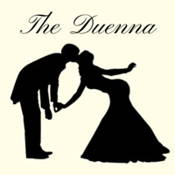
Overview
Synopsis
A hidden gem of English opera, The Duenna, a comic opera in three acts, was written by Richard Brinsley Sheridan and composed by Sheridan’s father-in-law, Thomas Linley Sr. and his son, Thomas Linley Jr. Don Jerome refuses to let his daughter Louisa marry her lover Antonio because he is poor and insists that she marry rich merchant Isaac Mendoza. Locked away in her room until she agrees to marry Isaac, Louisa and her Duenna hatch a ruse to thwart her father’s plans. Louisa and her Duenna swap identities as Louisa escapes to elope with Antonio and the Duenna tricks rich Isaac into marrying her. Meanwhile, Lousia’s brother Ferdinand is heartbroken over his lover Clara’s fickle temperament. Don Antonio promises to help Ferdinand win over Clara and marry his true love. Will these three couples all make it to the altar? Hailed as “the best opera ever written” by Lord Byron, The Duenna will leave audiences laughing as the young couples trick and deceive each other in the name of love.
Show Information
Context
Plot
Characters
| Name | Part Size | Gender | Vocal Part |
|---|---|---|---|
|
Lead |
Male |
Baritone |
|
|
Lead |
Female |
Soprano |
|
|
Lead |
Male |
Tenor |
|
|
Lead |
Male |
Tenor |
|
|
Lead |
Male |
Tenor |
|
|
Supporting |
Male |
Tenor |
|
|
Supporting |
Female |
Mezzo-Soprano |
|
|
Supporting |
Female |
Soprano |
|
|
Featured |
Male |
Tenor, Baritone, Bass |
|
|
Featured |
Male |
Non-singer |
|
|
Ensemble |
Either Gender |
Non-singer |
Songs
A song with an asterisk (*) before the title indicates a dance number; a character listed in a song with an asterisk (*) by the character's name indicates that the character exclusively serves as a dancer in this song, which is sung by other characters.
Monologues
Scenes
Key Terms
Sorry! We do not currently have terms for this guide.
Videos
Quizzes
Themes, Symbols & Motifs
Sorry! We do not currently have learning modules for this guide.
Quote Analysis
Sorry! We do not currently have learning modules for this guide.
